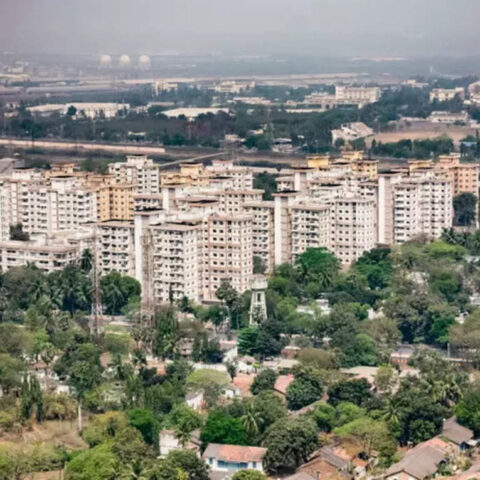“The pyramid was originally 481 feet high, but due to erosion, it lost 31 feet and today stands at 449.5 feet,” says Girgis. (To put that in context, the Statue of Liberty tops out at 305 feet.) For nearly 4,000 years, it was the tallest building in the world—and it’s hefty too. The pyramid was built with an estimated 2.3 million stone blocks, which weigh 2.5 to 15 tons each.
And here’s a bit of a fun fact for those who haven’t been to Giza: In most photos, the middle pyramid (built by Khufu’s son, Khafre) seems to be the tallest, but it’s an illusion. The Great Pyramid is the back pyramid, and it only looks shorter because it’s built on lower ground. In case you were wondering, the third pyramid of the main three was built by Khafre’s son, Menkaure, and it’s less than half the height of the Great Pyramid.
Why is the Great Pyramid of Giza important?
For starters, it’s an architectural marvel. The fact that such a massive structure could be built 4,000 years ago—and last to the present day—is extraordinary. It’s incredible to think that hundreds of generations of humans have gazed upon the Great Pyramid.
Day thinks the human element of the Great Pyramid and the Giza necropolis at large is also intriguing. “The Giza complex itself is made up of the pyramids, yes, but also temples, cemeteries, and even a settlement for the workers who built the structures,” she says. “It’s a wonderful snapshot of power and ambition, as well as daily life. It wasn’t just builders working there, but craftsmen, administrators, and even bakers. The pyramid itself is a testament to human ambition and innovation, but we often forget about the people who were fueling and facilitating the actual building process.”
How do you visit the Great Pyramid of Giza?
The Giza Plateau, where you’ll find six pyramids plus the Great Sphinx, is gated. You can buy tickets at the entrance. And while you don’t need a guide to enter the site, Girgis suggests hiring a certified Egyptologist to provide you with crucial context about the pyramids during your visit—there’s not much in the way of signage or placards.
It’s possible to enter the Great Pyramid too. You’ll need a special ticket, which you can buy at the entrance gate. “Only 300 people are allowed inside the Great Pyramid each day, so I highly recommend visiting the site in the early morning hours to maximize your chances of getting a ticket. This will also help in beating the midday heat,” says Girgis. He also advises that anyone who is claustrophobic should not enter, as the passageway leading to the king’s chamber is very cramped.
What is inside the Great Pyramid of Giza?
Truthfully, not much. “Unfortunately, the pyramid was plundered, and therefore no objects were discovered inside,” says Girgis. “Only a series of corridors and an empty chamber can be seen today. Inside the king’s burial chamber, there is an empty sarcophagus made from granite that presumably housed the body of King Khufu.”
Day points out that the interior is not as highly decorated as you might expect. “Contrary to many later pyramids, there are no hieroglyphs inside the burial chamber—or anywhere else,” she says. “Another interesting fact is that there’s no mummy inside the Great Pyramid either. Perhaps there was in antiquity, but Khufu’s mummy is yet to be found.”







